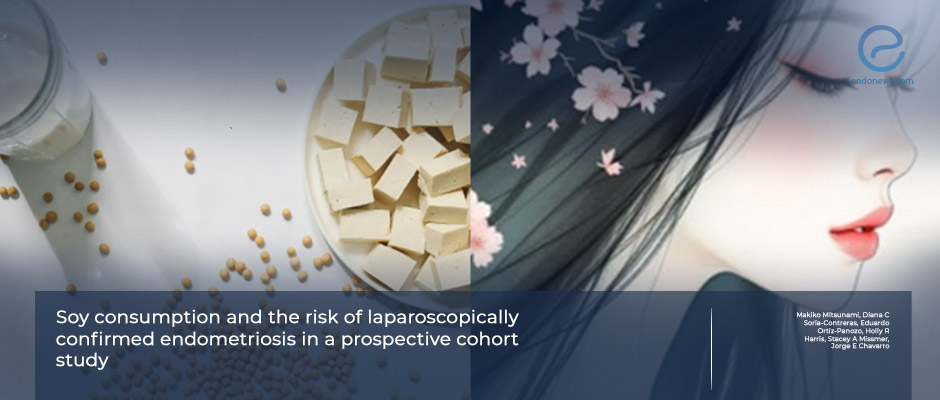Soy Consumption and Endometriosis Prevention
Aug 1, 2025
Regular Soy Intake Tied to Decreased Odds of Endometriosis Diagnosis
Key Points
Highlights:
- Higher intake of soy products may be associated with a reduced risk of endometriosis in premenopausal women.
- Isoflavones in soy, known for their estrogen-like properties, may play a protective role in hormonally mediated gynecologic disorders like endometriosis.
Importance:
- Dietary modification is a non-invasive, low-cost strategy that may help lower endometriosis risk in susceptible populations.
- This study adds epidemiological support to the hypothesis that soy consumption, rich in plant-based phytoestrogens, may modulate endometriosis development or progression.
- If confirmed, these findings may support dietary counseling as part of a broader preventive approach.
What’s done here:
- A prospective cohort study within the Nurses’ Health Study II examined dietary patterns and endometriosis diagnosis among 82,084 premenopausal women aged 27–44 years at baseline in 1991.
- Soy food and isoflavone intake were assessed through validated food frequency questionnaires.
- Incidence of laparoscopically confirmed endometriosis was tracked over time.
Key results:
- Each additional weekly serving of soy food was associated with an 8% reduced risk of endometriosis.
- A significant inverse association was found between isoflavone intake and endometriosis risk.
- Women in the highest quintile of isoflavone consumption had notably lower rates of endometriosis than those in the lowest quintile.
- The protective association appeared stronger among women who had not reported infertility, suggesting differential pathways in disease development.
Limitations:
- Approximately 90% of participants reported low or no soy consumption, potentially limiting statistical power.
- Dietary intake and health outcomes were self-reported, raising the possibility of measurement bias.
- The cohort was predominantly white, educated, and health-conscious, which may limit generalizability to broader populations.
- Soy consumption may act as a marker of overall health-seeking behavior, making causal inference difficult.
From the Editor-in-Chief – EndoNews
"This large prospective study adds an important layer to the growing dialogue on the role of diet in endometriosis prevention.
The inverse association between soy intake and disease risk—particularly among women without infertility—suggests that phytoestrogens may influence the hormonal pathways underlying endometriosis-related pain.
While causality remains unproven, these findings open the door to non-invasive, lifestyle-based interventions in a field long dominated by surgery and hormonal suppression. Dietary counseling, once peripheral in endometriosis care, may deserve a more prominent role in patient-centered management moving forward."
Lay Summary
A new study published in Fertility and Sterility suggests that regular consumption of soy-based foods may help lower the risk of developing endometriosis—particularly among women without a history of infertility.
This supports the growing interest in dietary strategies for managing hormonally driven gynecologic conditions.
Researchers from Harvard Medical School and the Harvard T.H. Chan School of Public Health examined data from 82,084 premenopausal women, aged 27 to 44, participating in the Nurses’ Health Study II. Over the study period, 3,829 women were diagnosed with laparoscopically confirmed endometriosis, yielding an incidence rate of 369 per 100,000 person-years.
The analysis revealed that each additional serving of soy per week was linked to an 8% reduction in endometriosis risk—but only in women who did not report infertility. Additionally, women who consumed higher levels of isoflavones, plant-derived compounds with estrogen-like effects found in soy, had significantly lower risks of developing endometriosis.
These findings suggest that dietary intake of soy may influence endometriosis risk, particularly for women whose symptoms manifest primarily as pelvic pain rather than infertility. However, the results also call for further research to clarify the mechanisms and to evaluate whether these protective effects apply across broader and more diverse populations.
Research Source: https://pubmed.ncbi.nlm.nih.gov/40578660/
diet soy isoflavone infertility

